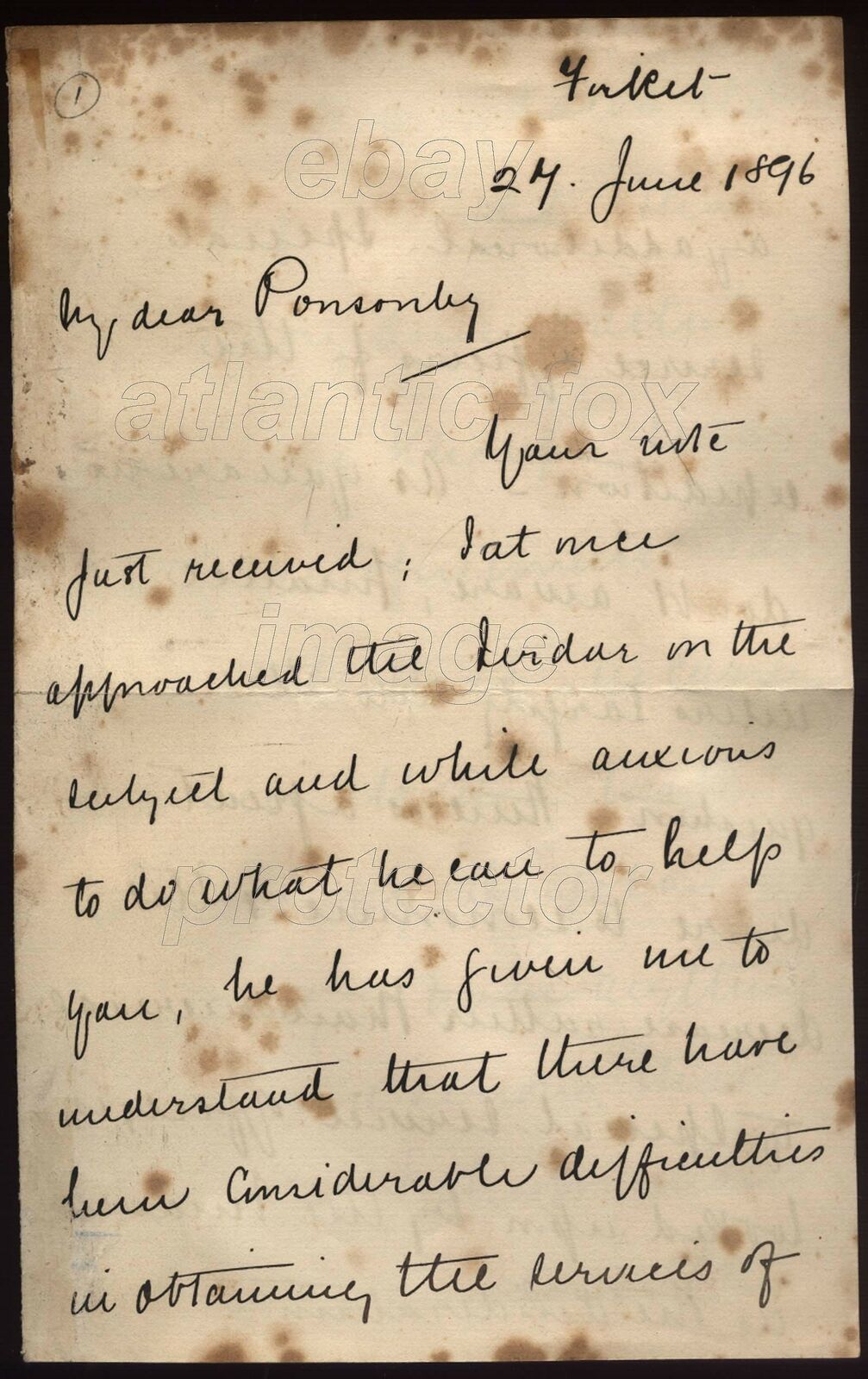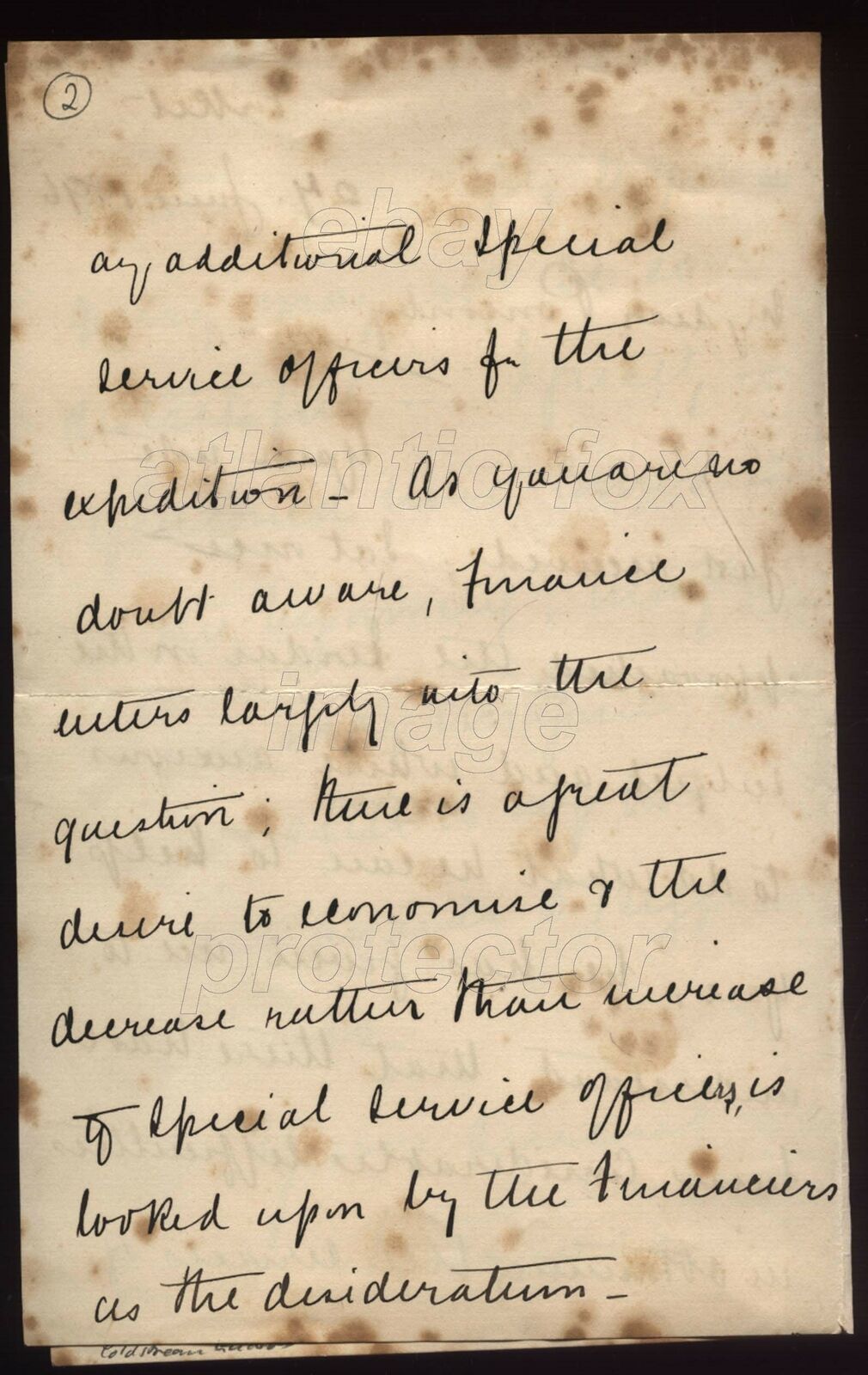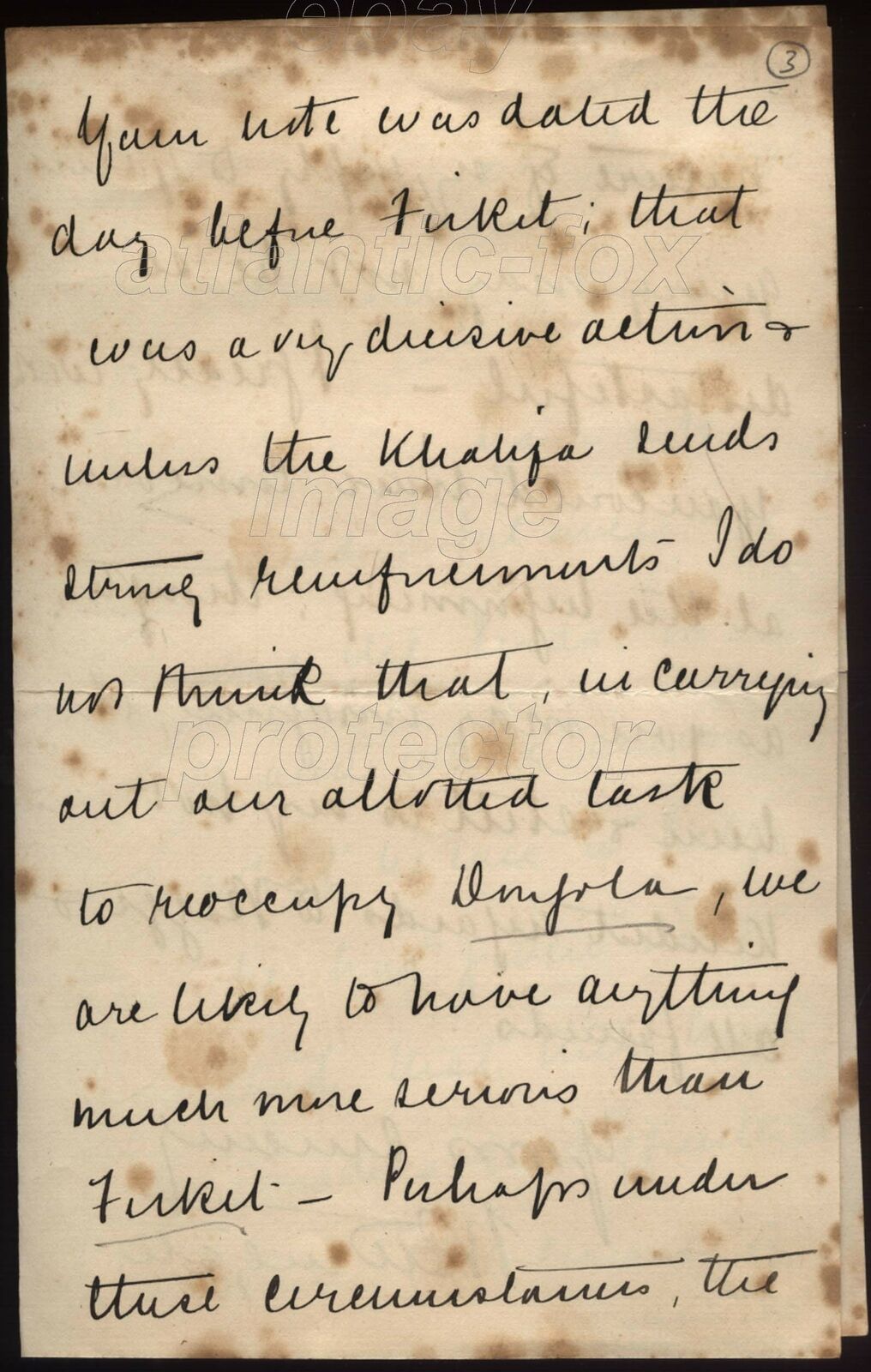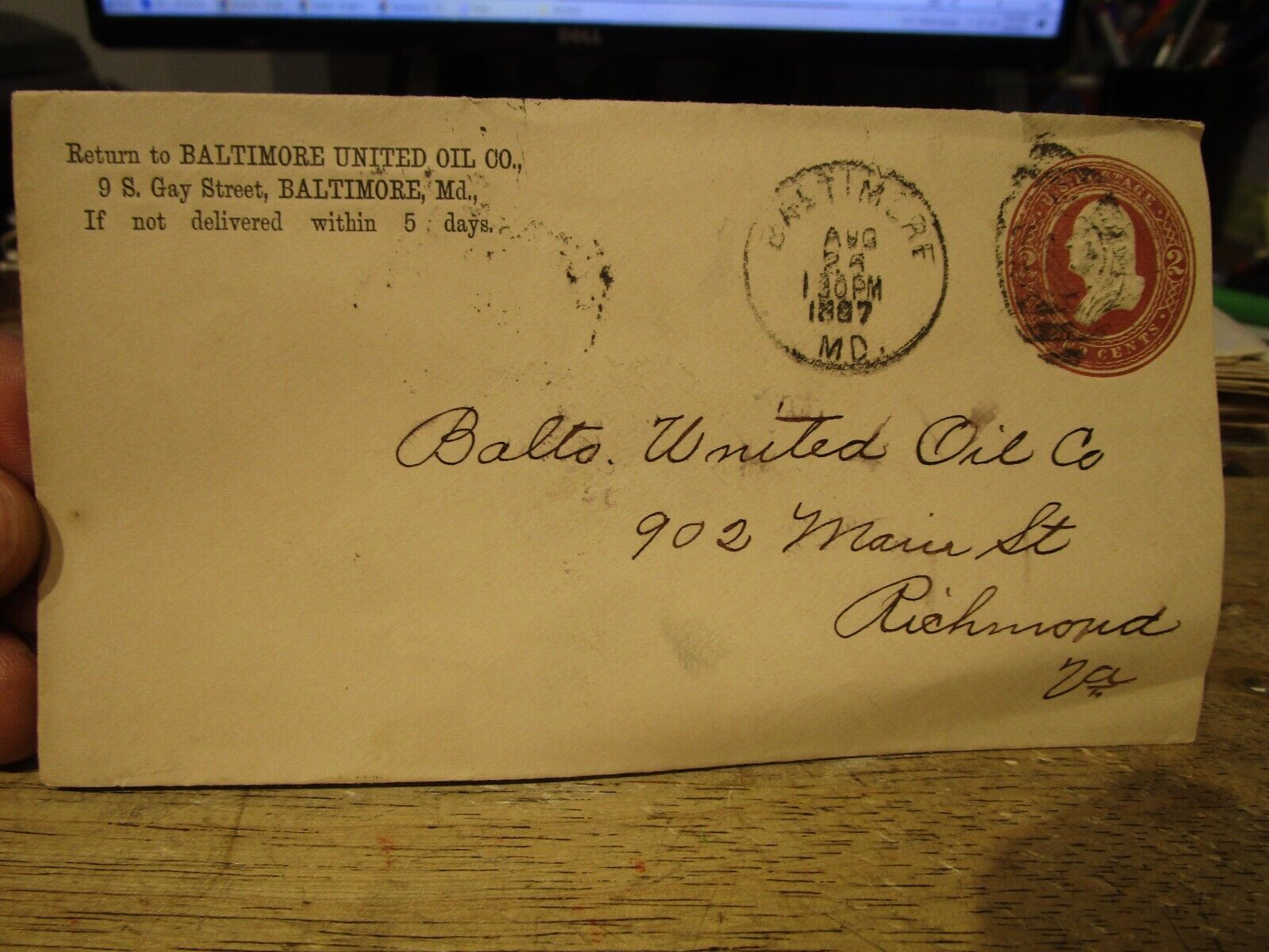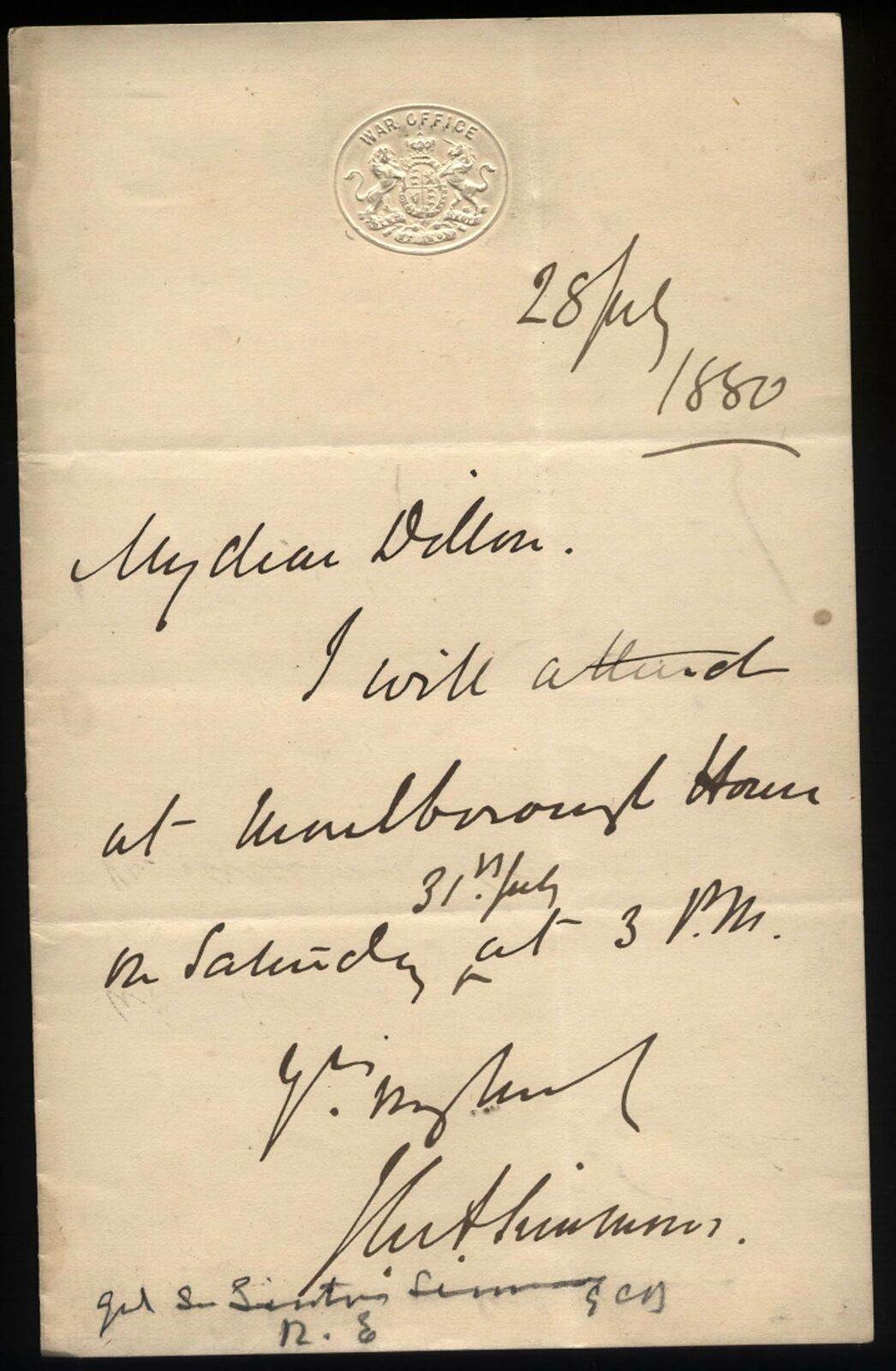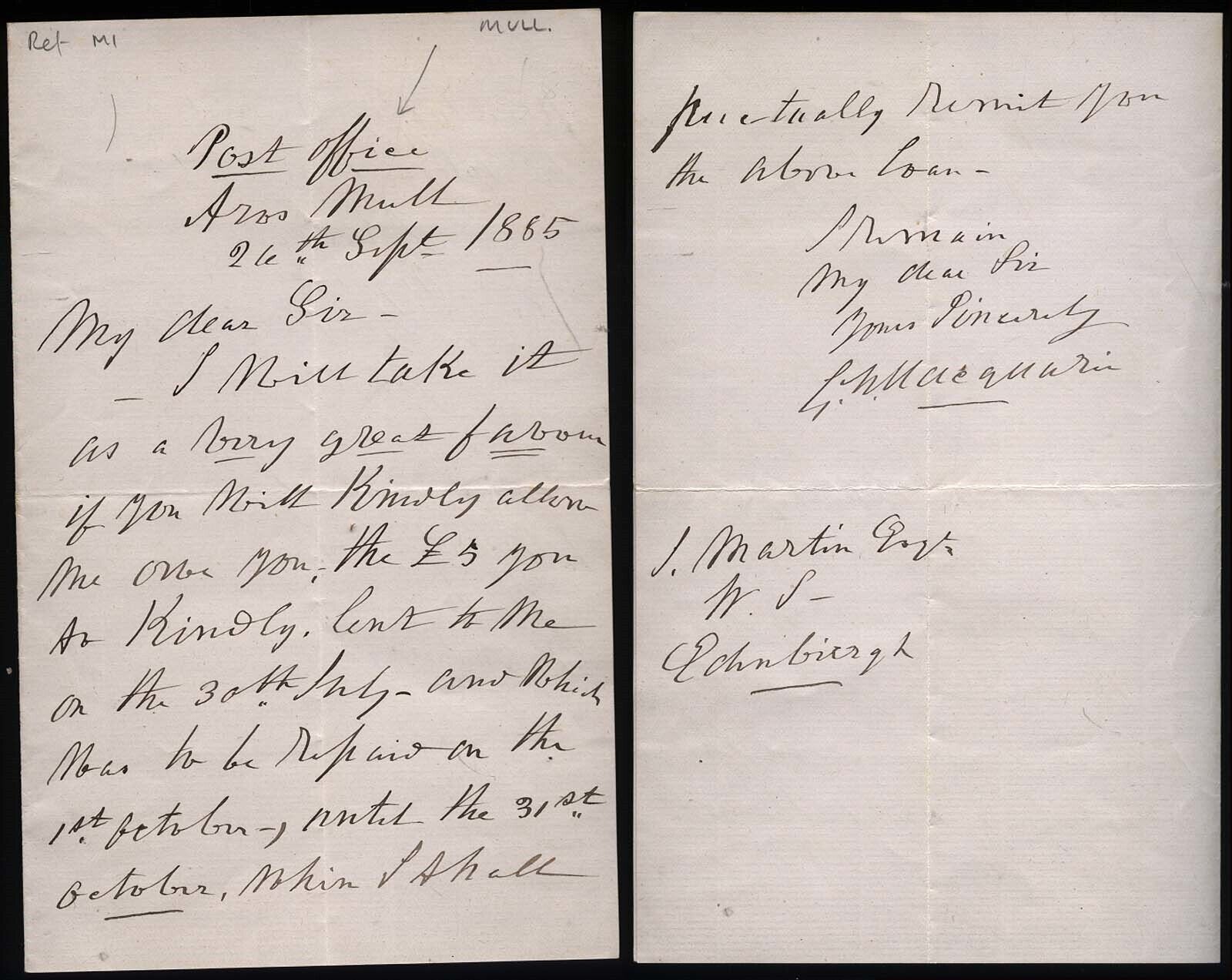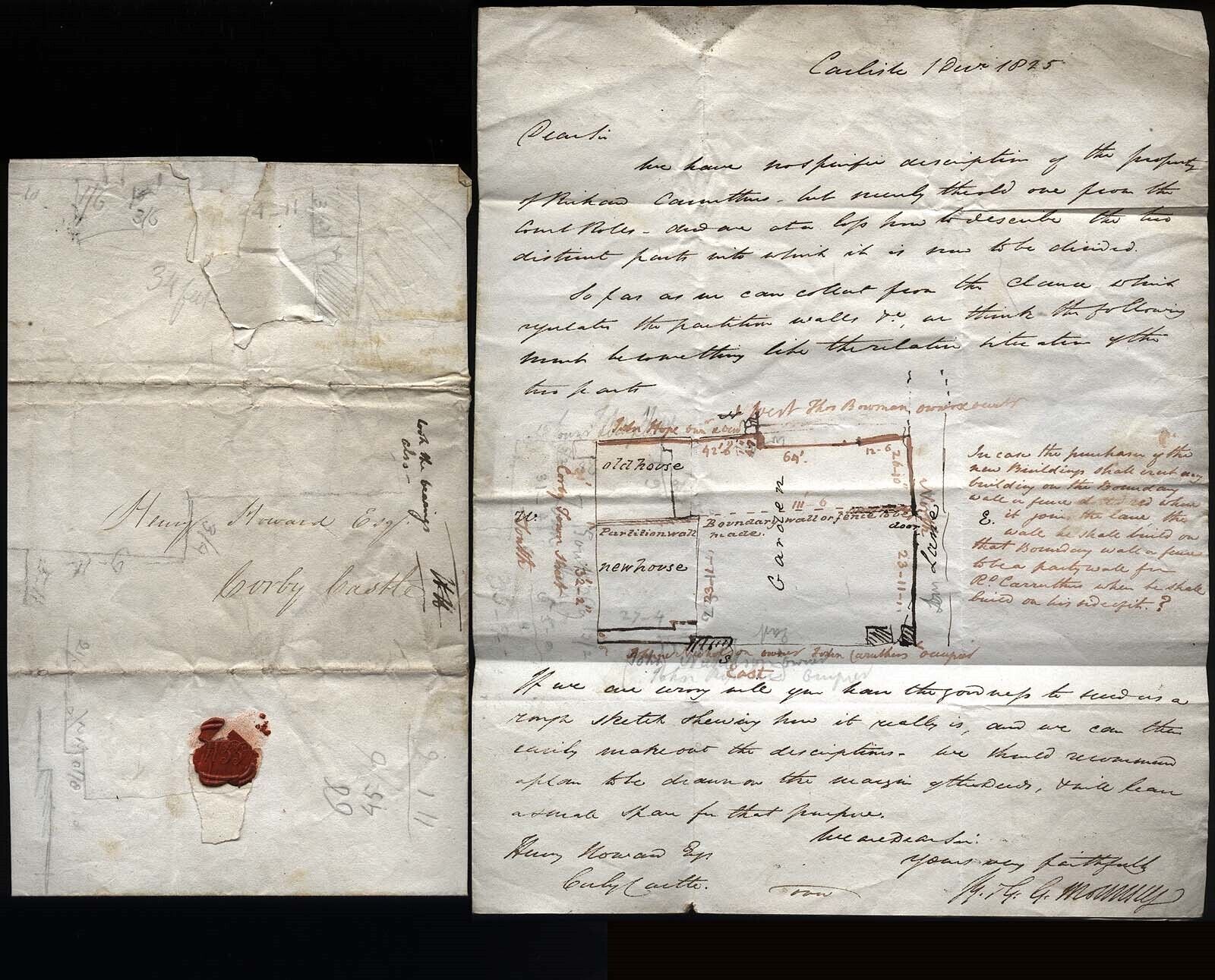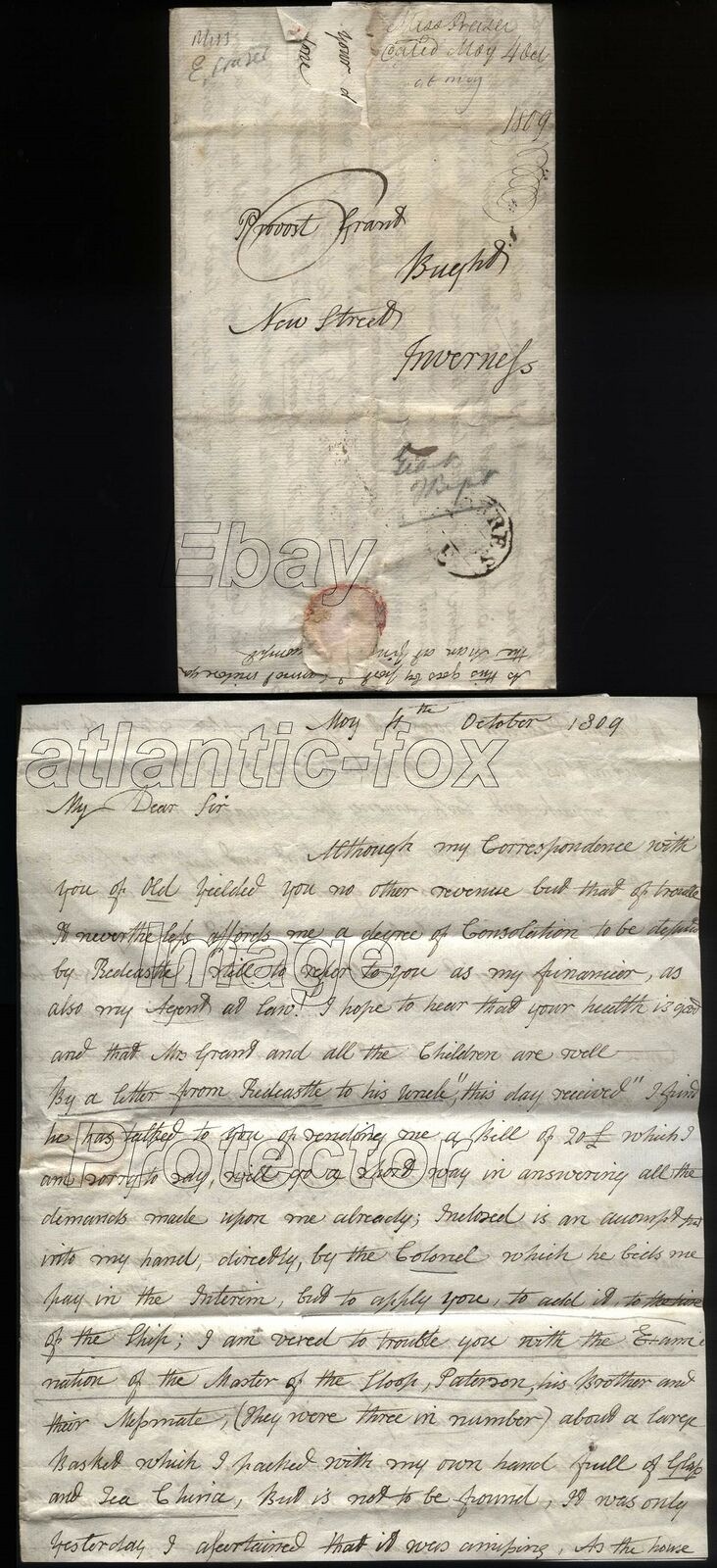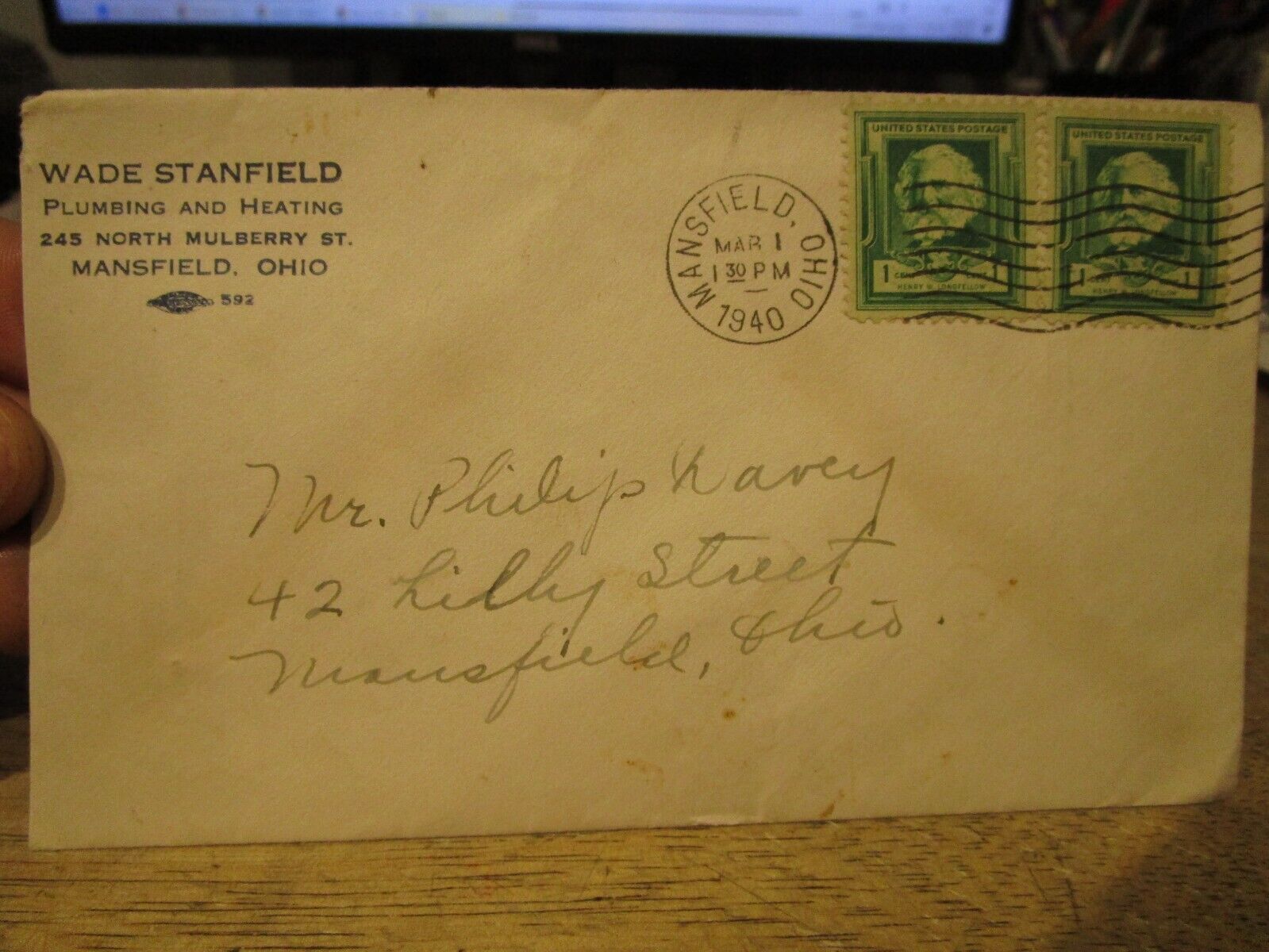-40%
1896 SUDAN - BATTLE of FIRKET letter, General Frances R Wingate to John Ponsonby
$ 479.87
- Description
- Size Guide
Description
1896 SUDAN - BATTLE of FIRKET letter, General Frances R Wingate to John PonsonbyThis product data sheet is originally written in English.
1896 SUDAN - BATTLE of FIRKET letter, General Frances Reginald Wingate to John Ponsonby, An interesting and rare letter written shortly after the Battle of Firket, (7th June) whereby receiving a note from Officer, Lieutenant John Ponsonby , the brother of Frederick Ponsonby and son of the late Sir Henry Ponsonby the Queens Private Secretary, requesting a postion on the Expedition and reply by Wingate with the reasons why they cannot use him and details concerning the aftermath of the Battle of Firket.
"Firket
27 June 1896
My Dear Ponsonby,
Your note just received, I at once approached the Sirdar on the subject and while anxious to do what he can to help you, he has given me to understand that there have been considerable difficulties in obtaining the services of any additional special service Officers for the Expedition.
As you are no doubt aware, finance enters largely into the question - there is a great desire to economise & the decrease rather than increase & Special Service Officers is looked upon by the financiers as the desideratum.
Your note was dated the day before Firket - that was a very decisive action & unless the Khalifa sends strong re-enforcements I do not think that in carrying out our allotted task to reocupy Dongola, we are likely to have anything much more serious than Firket.
Perhaps under these circumstances the nature of my reply to your query may not be so distasteful.
I greatly wish you could have come out at the beginning, though as you may imagine, it has been & still is my lot.
Kindest regards to Bigge & all friends.
yours sincerely
F W Wingate."
The Battle of Ferkeh (or Firket)
occurred during the Mahdist War in which an army of the Mahdist Sudanese was surprised and routed by British-led Egyptian forces, led by Sir Herbert Kitchener, on 7 June 1896. It was the first significant action of the reconquest of Sudan, which culminated in the September 1898 Battle of Omdurman.
General Sir Francis Reginald Wingate, 1st Baronet, GCB, GCVO, GBE, KCMG, DSO, DL, TD (25 June 1861 – 29 January 1953) was a British general and administrator in Egypt and the Sudan. He earned the nom de guerre Wingate of the Sudan.
Early life
Wingate was born at Port Glasgow, Renfrewshire (now Inverclyde), the seventh son of Andrew Wingate, a textile merchant of Glasgow, and Elizabeth, daughter of Richard Turner of Dublin. His father died when he was a year old, and the family, in straitened circumstances, moved to Jersey, where he was educated at St James's Collegiate School.
Military career
He entered the Royal Military Academy, Woolwich, and was commissioned a lieutenant in the Royal Artillery on 27 July 1880.[2] He served in India and Aden from March 1881 to 1883, when he joined the 4th Battalion of the Egyptian Army[3] on its reorganisation by Sir Evelyn Wood with the brevet rank of major. In the Gordon Relief Expedition of 1884–1885 he was ADC and military secretary to Sir Evelyn
. After holding an appointment in England for a brief period as ADC to Wood, who was now General Officer Commanding Eastern District,[4] he rejoined the Egyptian Army in 1886[5] as assistant military secretary to Sir Francis Grenfell. He took part in the operations on the Sudan frontier in 1889, including the engagement at Toski and in the further operations in 1891, being present at the capture of Tokar. His principal work was in the intelligence branch,[6] of which he became assistant adjutant-general in 1888 and director in 1892. A master of Arabic, his knowledge of the country, the examination of prisoners, refugees and others from the Sudan, and the study of documents captured from the Dervishes enabled him to publish in 1891 Mahdiism and the Egyptian Sudan, an authoritative account of the rise of the Muhammad Ahmad and of subsequent events in the Sudan up to that date. In 1894 he was governor of Suakin. He was promoted to brevet lieutenant colonel on 18 November 1896
Largely through his assistance, Fathers Ohrwalder and Rossignoli, and two nuns escaped from Omdurman in 1891. Wingate also made the arrangements which led to the escape of Slatin Pasha in 1895. He translated into English Father Ohrwalder's narrative (Ten Years in the Mahdi's Camp, 1892) and Slatin's book (Fire and Sword in the Sudan, 1896).
As director of military intelligence he served in the campaigns of 1896–1898 which resulted in the reconquest of the Sudan, including the engagement at Firket, the battles of the Atbara and Omdurman and the expedition to Fashoda. He was again Mentioned in despatches for this work.[8] He briefly (March–June 1897) went to Abyssinia as second in command of the Rennell Rodd mission. For his services he was promoted brevet colonel and made an extra ADC to Queen Victoria on 17 December 1897,.[9] On 8 September 1898, he was promoted to the regimental rank of major.[10] Wingate was in command of an expeditionary force which in November 1899 defeated the remnant of the Dervish host at the Umm Diwaykarat, Kordofan, the khalifa being among the slain.
Administrative career
In December 1899, on Lord Kitchener being summoned to South Africa, Sir Reginald Wingate succeeded him as Governor-General of the Sudan and Sirdar of the Egyptian Army, being promoted to local major general on 22 December 1899.[11] His administration of the Anglo-Egyptian Sudan, between 1899 and 1916, achieved the colonial goals of the British Empire, with the colony regaining a degree of prosperity and its infrastructure being rebuilt and expanded. In 1909, at the request of the British government, Wingate undertook a special mission to Somaliland to report on the military situation in connection with the proposed evacuation of the interior of the protectorate. He was promoted general in November 1913. From 1916 to 1919 he was also commander of military operations in the Hedjaz.
[12] In 1917, Wingate succeeded Sir Henry McMahon as High Commissioner in Egypt, a post he held until 1919. He was not a successful administrator in the very different political climate in that country, and was made a scapegoat for the riots incited by Saad Zaghlul and his party that spread across Egypt. Angry at his treatment, Wingate refused to actually resign, even after he was officially replaced by Lord Allenby, and threatened to embarrass the British Government. He was refused a peerage or another appointment, although he was created a baronet in the 1920 King's Birthday Honours,[13] gazetted as a Baronet, of Dunbar, in the County of Haddington, and of Port Sudan.[14] He never held another public or military office, retiring from the Army on 1 February 1922,[15] but became a director of a number of companies. He continued to hold honorary positions in the army: as Colonel Commandant, Royal Artillery and Honorary Colonel of the 7th Battalion Manchester Regiment (appointed 1914), of the 57th (Lowland) Medium Brigade, Royal Artillery (appointed in 1922), and of the 65th Anti-Aircraft Regiment Royal Artillery (6th/7th Battalion Manchester Regiment) (appointed in 1941, which he retained until 27 September 1949.)[16][17][18][19]). For many years he was the senior general of the British Army.
Wingate married Catherine Rundle (later Dame Catherine Wingate) on 18 June 1888. He was the first cousin once removed to Orde Wingate, who led British commando units in Palestine, Sudan and Burma before and during the Second World War.
Wingate was succeeded in his baronetcy by his son Sir Ronald.
Legacy Wingate is commemorated in the scientific name of a species of lizard, Trachylepis wingati,[20] which is endemic to Ethiopia and Sudan.
Works
Mahdiism and the Egyptian Sudan: Being an Account of the Rise and Progress of Mahdiism and of Subsequent events in the Sudan Up to the Present Time by Francis Reginald Wingate Ten Years' Captivity in the Mahdi's Camp, 1882–1892 by Fr. Ohrwalder, translated by Wingate Ten Years' Captivity in the Mahdi's Camp, 1882–1892 by Fr. Ohrwalder, translated by Wingate (1892) (Project Gutenberg HTML and other full-text versions) Fire and Sword in the Sudan by Slatin, translated by Wingate Honours and decorations
In 1887 he received the Order of the Medjidieh 4th Class.[22] In 1883 he received the Order of Osmanieh 4th Class from the Khedive.[23] In June 1885, he was Mentioned in Despatches for service in operations in the Suakin and Upper Nile regions.[24] In 1891 he was promoted to the 3rd Class of the Order of the Medjidieh.[25][26] He was appointed Companion of the Order of the Bath (CB) in the Queen's 1895 Birthday Honours.[27] He was awarded the Distinguished Service Order (DSO)[28] He was awarded the Star of Ethiopia 2nd Class.[29] He was promoted to Knight Commander of the Order of the Bath (KCB) on 13 March 1900,[30] He was awarded the Order of Osmanieh 2nd Class.[31] He was appointed a Knight Commander of the Order of St Michael and St George (KCMG) on 11 November 1898.[32] In 1901 he was promoted to the Order of the Medjidieh 1st Class,[33] and in 1905 to the Order of the Osmanieh 1st Class.[34] In 1905 received the honorary degree of Doctor of Civil Law from the University of Oxford. He was appointed Knight Grand Cross of the Royal Victorian Order (GCVO) on 17 January 1912,[35] Knight Grand Cross of the Order of the Bath (GCB) in the 1914 King's Birthday Honours,[36] and Knight Grand Cross of the Order of the British Empire (GBE) in the 1918 New Year Honours.[37] He was made Honorary Colonel of the 7th Battalion, Manchester Regiment on 16 December 1914,[38] and a Colonel Commandant of the Royal Artillery on 17 May 1917.[39] In 1915 he was awarded the Grand Cordon of the Order of the Nile,[40] and in 1917 the Grand Cordon of the Order of Mohammed Ali.[41] He was made a Knight of the Venerable Order of St John in 1919.[42] He was awarded the Efficiency Decoration in 1935.[43] He was also appointed a Deputy Lieutenant for the County of East Lothian
Fresh to the Market Place, from Major-General Sir John Ponsonby's Collection
For more from this collection see our shop category for SIR HENRY & JOHN PONSONBY COLLECTION
John Ponsonby (British Army officer)From Wikipedia, the free encyclopedia
Major-General Sir John Ponsonby KCB CMG DSO (25 March 1866 – 26 March 1952) was a British Army officer who commanded 5th Division during World War I
Born the son of Sir Henry Ponsonby (Queen Victoria's Private Secretary), his Mother Hon. Mary Elizabeth Ponsonby, Maid of Honour to Queen Victoria and a daughter of John Crocker Bulteel.
His brothers were Frederick Ponsonby, ( Assistant Private Secretary to Edward VII & GV), and Arthur Augustus William Harry Ponsonby, 1st Baron Ponsonby of Shulbrede, (British politician, writer, and social activist).
Sir John was educated at Eton College, He was gazetted to the Royal Irish Rifles 16 November 1887, and to the Coldstream Guards 15 August 1888, becoming Lieutenant 29 June 1891. He was ADC to the Governor and Commander-in-Chief, South Africa, 10 August 1891 to 30 January 1895; served in operations in Matabeleland (Medal); was promoted to Captain 7 September 1898, and in that year served in Uganda (Medal), and again in 1899, during the operations against Kabarega (clasp). Captain Ponsonby served in the South African War, 1899-1902, on special service with the Rhodesian Field Force, 19 February 1900 to 7 July 1901. He was Adjutant, 5th New Zealand Regiment, 8 June 1900 to 1 January 1901; afterwards in command 1 January to 18 January 1901. From February to May 1900, be was employed with Mounted Infantry, and he took part in operations in the Transvaal, west of Pretoria, from July to 29 November 1900; operations in the Transvaal, February to June 1901; operations in Cape Colony, February to 31 May 1902. He was mentioned in Despatches [London Gazette, 10 September 1901]; received the Queen's Medal with four clasps, the King's Medal with two clasps, and was created a Companion of the Distinguished Service Order [London Gazette, 27 September 1901]: "John Ponsonby, Captain, Coldstream Guards. In recognition of services during the operations in South Africa". The Insignia were presented by the King 27 October 1901. He was promoted to Major 23 January 1904, and commanded the Guards' Depot 1 March 1905 to 28 February 1907. He became Lieutenant Colonel 28 October 1913.
Lieutenant Colonel Ponsonby served in the European War, 1914—18; Landed in France 13th August 1914 in charge of 1st Coldstream Guards,Wounded 15th September & returned to unit 21st November. commanded the 2nd Guards Brigade, BEF, 26 August 1915 to 19 November 1916: was given the Brevet of Colonel 1 January 1916; commanded the Special Reserve Infantry Brigade 28 November 1916 to 7 March 1917; commanded the 21st Infantry Brigade, BEF, 8 March to 20 March 1917; became Colonel 20 March 1917; commanded the 2nd Guards Brigade, British Armies in France, 21 March to 21 August 1917; commanded the 40th Division, British Armies in France, 22 August 1917 to 3 July 1918; subsequently commanded the 5th Division, British Armies in France, 4 July 1918 to 1 April 1919; was promoted to Major General 1 January 1919. He was mentioned in Despatches; created a CMG in 1915, a CB in 1918, and was given the Brevet of Colonel.
He went on to become General Officer Commanding 5th Division remaining in that role until the end of the War. After the War he became General Officer Commanding the Madras District of India. He retired in 1928.
He lived at Haile Hall near Beckermet in Cumbria
:
Powered by SixBit's eCommerce Solution
1896 SUDAN - BATTLE of FIRKET letter, General Frances Reginald Wingate to John Ponsonby, An interesting and rare letter written shortly after the Battle of Firket, (7th June) whereby receiving a note from Officer, Lieutenant John Ponsonby , the brother of Frederick Ponsonby and son of the late Sir Henry Ponsonby the Queens Private Secretary, requesting a postion on the Expedition and reply by Wingate with the reasons why they cannot use him and details concerning the aftermath of the Battle of Firket. "Firket 27 June 1896 My Dear Ponsonby, Your note just received, I at once approached the Sirdar on the subject and while anxious to do what he can to help you, he has given me to understand that there have been considerable difficulties in obtaining the services of any additional special
City/Town/Village
Firket
Related Interests
Battle of Firket or Firkeh
EAN
Does Not apply
Country
Sudan
Era
1891-1900
Addressed to
Lieutenant John Ponsonby
Letter From
General F R Wingate
Document Type
Original Manuscript Letter
Year of Issue
1896
